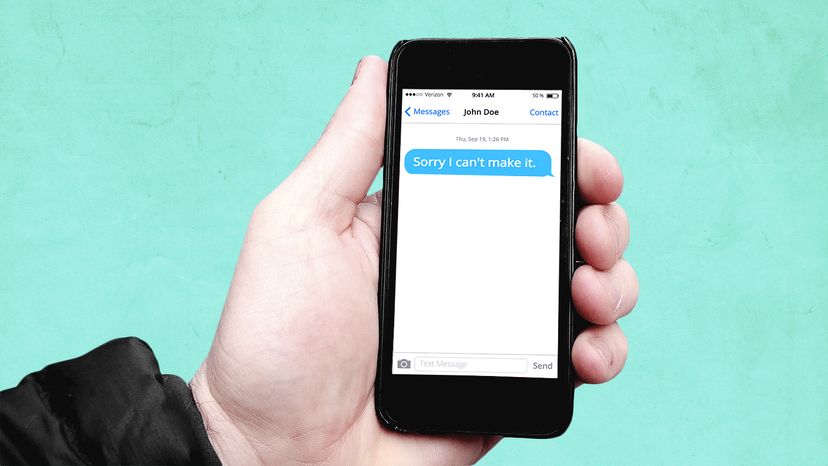
Getting rejected is never fun, but the experience apparently stings even more when accompanied by an apology. It might seem backwards that words usually meant to make people feel better do just the opposite, but a team from the University of Texas at Austin found that's exactly the case in research published in the journal Frontiers in Psychology.
"There has been a lot of research on how rejection impacts targets (the people being rejected), but we know less about the point of view of the rejecter," explains lead researcher Gili Freedman in an email interview. "In this set of studies, we wanted to understand how frequently rejecters include apologies in rejections and what effect apologies have on targets of rejection."
Advertisement
Results were surprising. "Across three sets of studies, apologies increased hurt feelings and the need to express forgiveness but did not increase feelings of forgiveness," the researchers write in the study.
The first set of studies looked at how likely people are to use apologies as part of a rejection. Participants wrote out exactly what they would say when told to reject a hypothetical person named Taylor for different experiences, like going out on a date, joining the office group for lunch or becoming roommates. The researchers found that on average 39 percent of the written rejections included the word "sorry" but these rejections were actually associated with more hurt feelings.
The second set of studies examined how rejections with apologies actually influence aggressive behavior.
"We set up a situation in which a research assistant pretending to be a participant rejected a real participant," Freedman explains. "The research assistant either rejected with an apology ('I'm sorry. I don't want to work with you') or without an apology ('I don't want to work with you'). Then the real participant had the opportunity to engage in aggression by giving the research assistant hot sauce to drink."
Hot sauce is often used in experiments that measure social rejection because people are often reluctant to admit that their feelings are hurt, note the study authors. In this study, the "rejectees" were told that the rejecters didn't like spicy food. "We found that research assistants who rejected with an apology were given more hot sauce by the person who was rejected (but don't worry, no one actually drank any hot sauce!)" says Freedman.
In the third set of studies, participants watched videos of people being rejected with or without apologies for varying scenarios. The rejections with apologies were considered less sincere than those that didn't include apologies. "We found in Study 3 that individuals presented with a rejection that included an apology felt that they would be obligated to express forgiveness but did not actually feel forgiveness," Freedman says. "In other words, rejections with apologies may put people in the uncomfortable situation of feeling like they have to forgive the person when they aren't quite ready to."
It turns out that an apology in such a situation gives a "sorry, not sorry," impression. "Most people know an apology in that situation doesn't represent sincere contrition, but rather an attempt at politeness or to make the one doing the rejecting feel less guilty. So, the apology is considered insincere or selfish, which can make the rejection worse," emails Jonathon Bennett, a Columbus, Ohio-based life and relationship coach and owner of the website The Popular Man. "Also, a sincere apology usually involves making amends and repairing a relationship. Most people hear an apology for a social rejection and think: 'if you're so sorry, then why are you still rejecting me?' Thus, it becomes empty."
So, what should you say when rejecting someone? That's what the study authors are hoping to examine next. In the meantime, Bennett advises people to be polite but also straightforward. "So, you could say something like 'You seem like a cool person, but I just don't have time to hang out this week' or 'You're really interesting, but I don't feel enough of a spark to go on a date,'" he says.
Advertisement


